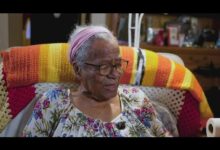Providing End-of-Life Care As a Nurse or Nursing Assistant

Death is a part of life and something that healthcare personnel must deal with very often. Knowing how to act when there is death can facilitate the mourning process and improve the reaction and the effect it has on the lives of those left behind.
Some studies have shown that family members of healthcare personnel during the current COVID-19 pandemic have experienced a great deal of stress and anxiety regarding the death of their loved ones. The depression of knowing that someone is going to die can cause problems with concentration and work and may lead healthcare workers to wonder about the well-being of their loved ones. This is also true for all healthcare personnel who have to deal with countless people dying under their care daily. Some things can be done to get over the death at this time and return to a relatively normal life after the inevitable death of a loved one. Some tips are:
- Since it is often impossible to have a standard funeral, digital tools can be used to be present or pay tribute to our loved ones.
- Support groups are a way for family members of the deceased to cope better with the death and get through the phases following death more quickly.
- Workplaces can pay special tributes to the courage, dedication, and devotion shown by the deceased so that family members can feel proud of their loved ones.
- Being aware of the possibility of death and living each day with meaning can help make the sudden death of a family member more bearable.
In the words of nurse Rose H. Francis, who works in a Hospice caring for near-to-death patients:
“Having more emotional capacities and tools allows us to cope with death in a better way, besides giving the comfort the patient needs before passing away.”
Dying With Dignity
It is essential to highlight the work of the health personnel who work in hospices, close to patients who are about to die. Consequently, the work can become depressing, to the point that some healthcare workers decide to avoid terminally ill patients because they feel they can no longer help them. This is not entirely true, as hospice care nurses can make a significant difference in the comfort and reassurance of the patient and family so that death is more dignified, bearable, and peaceful. It is important to remember that most care given to a patient near death should be discussed with the team and the patient’s family.
Many comfort care measures can be taken to support the patient. These measures satisfy various types of needs, such as:
- Physical. Hospice nurses can help make the physical part of dying less painful. Sometimes they can use prescribed pain medication; other times, they can try to make the patient as comfortable as possible through physical means like moving him, helping when his skin or mouth is too dry, helping him to eat things he likes, adjusting the background music, and providing sensations such as pleasant smells or flowers if the patient can still appreciate it, etc.
- Mental and emotional. Often, patients may feel isolated or alone, and it is vital to have someone with them. Moreover, the family could feel sad to be near a dying patient, and this loneliness can cause anxiety and fear for the patient. Involving the patient and providing companionship, listening or talking to him, and making him feel loved, can help to cope with any fears they may have about death.
- Practical tasks. This refers to giving the patient peace of mind that despite death, there will be someone to take care of tasks that are pending or that may be troubling them.
There are many pros to working in a hospice. Providing this type of care and making a difference in the lives of patients and their families is emotionally valuable. It is also helpful to remember that despite the emotional toll a hospice can create, there is great comfort and gratitude from the dying person and the family when the patient has lots of support during these last moments.
There is also the possibility of attending decompression discussions to better cope with the number of deaths that hospice staff has to deal with daily. The Nursa team recommends that all workers who see death regularly take care of their mental and emotional health.







